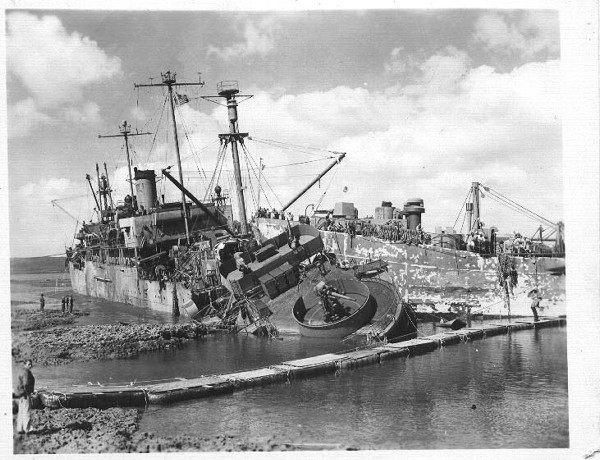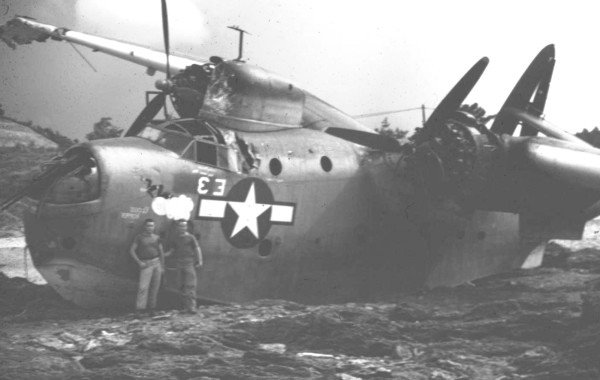[After helping to stabilize his own camp, Tuttle moved around Okinawa to see what damage Typhoon Louise had done to the rest of the preparations for Operation Olympic.]
Buckner Bay is the new home to several dozen naval monuments. For example, some 50 yards in from the normal waterline sits a full size model of an American Sumner-class destroyer. I am sure it is full size, because it is the actual USS Laffey, DD-724. I found the Laffey with her bow pointed out to sea, and her stern jammed deep into the earth. She was leaned over a few degrees to port. The skin of her starboard side showed a long deep wrinkle, running vertically from mid height right down to the keel…
…other less lucky ships line the beach and shallows. I quit counting at forty-something, with a long way to go. Some are capsized, others broken apart. Anonymous debris thoroughly litters the beach. I picked through some of it, trying to guess what any of it used to be. I stopped to find someone to tell about a body that graves registration hadn’t found yet.
No planes are flying from here. Zero. I can’t say how many planes we have here, but ‘hundreds’ does not cover it. Runways are being cleared of debris, but every single aircraft is grounded until each is inspected for damage. So far every bird has failed inspection, and they are cued up for work ranging from skin patches to engine swaps to outright scrapping.
A plane engine can be heard overhead periodically. I’m told we are flying limited CAP with long range fighters from elsewhere, just in case the Japs try to take advantage of our situation. I can’t imagine what they would find worth bombing.



My father, Floyd Deon Pollard (Red) was there aboard the USS Fomalhaut. He was but 18 years old and graduated from Greak Lakes the pervious May.